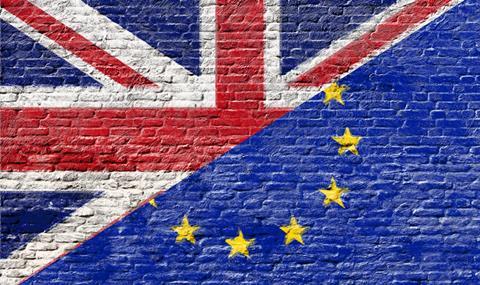
UK transport companies have until December 2020 to plan for Brexit, the government said today after revealing a transition period between the UK and EU had been agreed.
The government has agreed to a fixed Brexit transition period of 21 months, which should deliver relative stability in regards the legal and compliance framework operators are required to meet.
It has also accepted that Ireland/ Northern Ireland border arrangements will remain unchanged to avoid a hard border “unless or until” another solution can be found.
The transition period agreement, reached in the latest round of talks this week between Brexit secretary David Davis and chief EU negotiator Michel Barnier, means the UK will remain in the customs union until 31 December 2020, although it will not have a say in new EU laws during this time.
The talks also saw the UK accept a default or “backstop” solution to avoid a hard border, under which Northern Ireland and Ireland will remain in regulatory alignment “unless or until another solution can be found” that is agreeable to all parties.
The RHA welcomed the agreement on a transition period as “good news”.
RHA policy director Duncan Buchanan said: “Having a 'firm' date for January 2021 allows operators and customers to plan for customs formalities.”
Speaking to MT, Buchanan added: “There is a lot of work that needs to be done on the Northern Ireland/Ireland border issue and we need to see what arrangements will be put in place and we await solutions with interest.”
James Hookham, FTA deputy CEO said the transition period agreement gives businesses "a welcome breathing space” in which to prepare for Brexit.
He added; “We seem to be getting more time to agree the new border procedures and there is some confidence that UK employers will be able to continue to employ EU nationals up until the end of the transition and beyond.
"But business still needs to know what customs and trade procedures look like after the transition period: the customs duties and taxes, the formalities required in the UK and the arrangements for border inspections of goods, the number of trucks that will be allowed to cross the border and the arrangements for the recognition of drivers' licences and qualifications."
Hookham added: "Clarification in these two areas is a good start but we are still a long way from achieving low friction trade after Brexit.
"The transition period is welcome but it still leaves a lot for government and industry to achieve in an incredibly short space of time."
- A report published by the Brexit Select Committee this week concluded there can be no frictionless border in Northern Ireland unless the UK remains in the customs union and single market. It stated: “We cannot see how it will be possible to maintain an open border with no checks and no infrastructure if the UK leaves the customs union and the single market.” These concerns are echoed in a report from the Northern Ireland Affairs Committee, published last week, which found that there are “no border solutions anywhere in the world” which avoid physical infrastructure. The report called for “greater clarity” on how a frictionless border can remain between Northern Ireland and Ireland after Brexit and for greater detail on how checks on goods and people will be undertaken away from the border.














